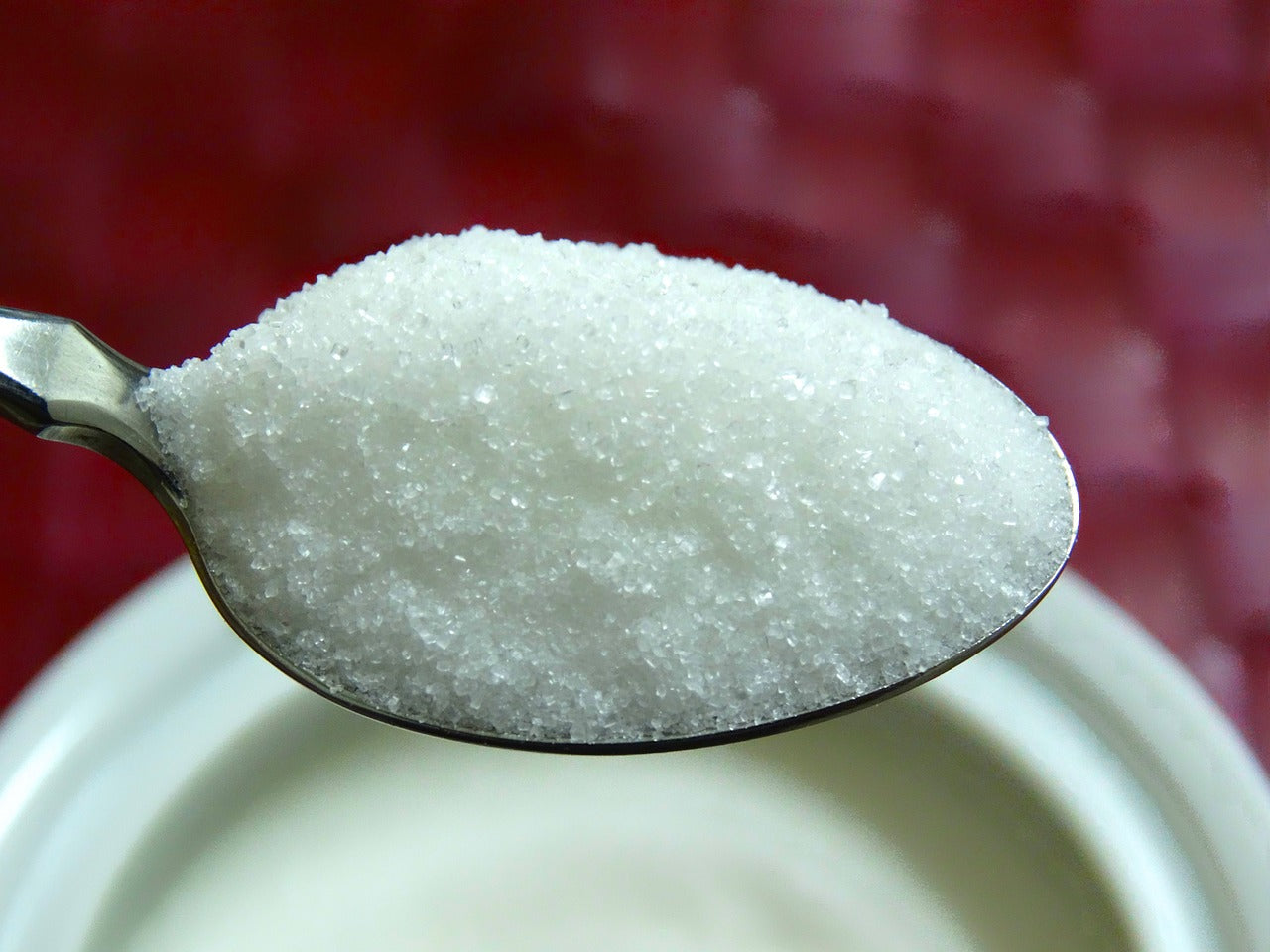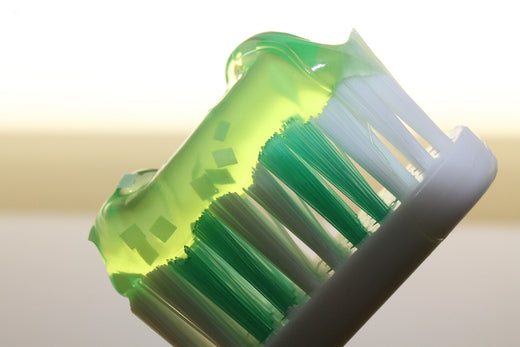
Raw Honey Vs Stevia: Which is Best Sugar Alternative?
Sugar is one of the most essential ingredients of one's daily diet. From beverages like coffee or tea to baked goods like biscuits or cakes, all contain sugar as a primary ingredient. You can say sugar is an integral part of the average Indian diet. However, specific health-conscious individuals are now on the lookout for a low-calorie and healthy alternative to sugar.
You may wonder why this is so. For starters, health experts now claim sugar is an unhealthy component of any diet. This has given rise to numerous healthy and natural alternatives like raw honey and stevia.
Now, you may ask, why are they a healthier option than white sugar? Which is better: stevia or raw honey? Most importantly, why must you choose sugar substitutes at all? Today, we aim to resolve all these inquiries altogether.
Here's a comprehensive guide to the two most popular sugar alternatives for a healthier lifestyle, helping you determine the most suitable choice for you!
Comparison of Raw Honey & Stevia
|
Characteristic |
Raw Honey |
Stevia |
|
Source |
Produced by bees from flower nectar |
Derived from the leaves of the stevia plant |
|
Caloric Content |
Higher calorie content (approx. 64 calories per tablespoon) |
Virtually calorie-free |
|
Sweetness |
Sweeter than sugar |
Much sweeter than sugar (often 50-300 times sweeter) |
|
Glycemic Index (GI) |
Moderate to high GI can affect blood sugar levels |
Zero GI does not impact blood sugar |
|
Nutritional Value |
Contains some vitamins, minerals, and antioxidants |
Virtually no nutritional value |
|
Flavor and Texture |
It has a distinct flavour and viscosity, similar to syrup |
It does not have a significant flavour or texture |
|
Natural vs. Artificial |
Natural sweetener |
Natural sweetener, often used as a sugar substitute |
|
Potential Benefits |
It may provide some health benefits due to antioxidants and trace elements |
It can be suitable for people with diabetes and those looking to reduce sugar intake |
|
Use in Cooking/Baking |
Commonly used in cooking and baking |
Used as a sugar substitute in recipes but may require adjustments |
|
Allergies |
It can cause allergies in some individuals, especially if they are allergic to bee products. |
Generally well-tolerated with fewer reported allergies. |
|
Availability |
Widely available |
Available in various forms (liquid, powder, granules) in many stores |
Why Should You Choose a Sugar Substitute?

Your health and general well-being can benefit significantly from choosing a sugar alternative. Firstly, it may drastically lower calorie consumption, which makes it an excellent option for anyone trying to maintain or lose weight.
In addition, adopting sugar replacements can aid with blood sugar level stabilisation, making it a safer option for persons with diabetes or those at risk of contracting the disease.
These substitutes may also be better for your teeth because they don't encourage tooth decay as conventional sugar does. They usually have a lower glycemic index as well. Therefore, it indicates that they have less of an effect on your blood sugar levels.
Finally, sugar alternatives may offer you a whole new world of culinary options. It lets you indulge in guilt-free sweet flavours while making it simpler to stick to a nutritious and balanced diet. So, selecting a sugar alternative is a step towards a healthy lifestyle that has advantages for both the body and the palate.
Stevia: Nature's Sweetness, Zero Calories.
The Stevia rebaudiana plant, native to South America, serves as a natural sweetener derived from its leaves. While it has been utilised as a sweetening agent for centuries, its popularity in the Western world has surged only recently. Notably, it surpasses sugar in sweetness but boasts zero calories and does not induce rapid spikes in blood sugar levels.
How Does It Benefit Your Health?
One of the primary advantages of opting for stevia over sugar lies in its potential to mitigate the risk of obesity and associated health issues. Sugar consumption prompts our bodies to swiftly convert it into glucose, which is either used for energy or stored as fat.
However, excessive sugar intake can overwhelm our capacity to utilise all the glucose, leading to its accumulation as fat. This gradual buildup can result in weight gain and obesity, a significant risk factor for numerous health ailments.
In contrast, stevia's impact on the body differs. Since it doesn't elevate blood sugar levels, it is less prone to being stored as fat. Consequently, it proves beneficial for individuals aiming to shed pounds or maintain a healthy weight.
Furthermore, stevia exhibits anti-inflammatory and antioxidant properties, potentially reducing the risk of chronic conditions like cancer and heart disease.
Nutritional Value of Stevia

Stevia's chemical composition includes elements such as protein, carbohydrates, fats, ash, and fibre. It is rich in vitamins, including vitamin A, vitamin C, and various B-complex vitamins like thiamine and riboflavin. Stevia also serves as a source of both significant and minor minerals while maintaining a low-calorie profile.
Also read:
In its unprocessed state, it boasts significant nutritional value, providing essential vitamins and minerals like vitamin C, niacin, magnesium, calcium, chromium, zinc, potassium, and phosphorus.
Stevia is frequently used as a sugar replacement in a variety of foods and beverages. So, it may be a helpful tool for lowering daily intake of sugar while still satiating sweet tooth cravings.
Raw Honey: Natural Alternative to Sugar & Stevia
Raw honey is one of the most popular natural sweeteners that people have been using since time unknown. Thanks to the hardworking nature of bees that collect nectar from flowers, it helps in the production of honey loaded with benefits. Similar to stevia, honey is also sweeter compared to refined sugar.
Nevertheless, it has various antioxidants and nutrients that may benefit your health greatly. Most importantly, honey is less likely to raise your blood sugar levels. So, that's what makes it an excellent alternative for individuals with diabetes or those trying to lessen their sugar intake.
How Does It Benefit Your Health?
Honey's antimicrobial nature is one of the most remarkable properties. Consuming it can aid in fighting off bacteria or other harmful microorganisms. Since honey contains hydrogen peroxide, it acts as a natural disinfectant. In the good old days, honey has shown effective results in treating various conditions like burns, acne, wounds, etc.
Honey also boasts a wealth of antioxidants, which play a crucial role in diminishing the likelihood of chronic illnesses such as cancer and heart disease. These antioxidants act by counteracting detrimental free radicals within the body, mitigating potential cell damage and diminishing the risk of disease development.
Notably, honey contains a significant concentration of flavonoids, a specific type of antioxidant that has been associated with a reduced risk of heart disease and other health-related issues.
While honey is generally recognised as a healthful sweetener, it's essential to bear in mind that it still contributes to your calorie intake. Like any sweetener, it should be consumed judiciously as part of a well-rounded diet.
Furthermore, specific types of honey can exhibit elevated levels of fructose, which might pose difficulties for individuals with certain health conditions like fructose intolerance or insulin resistance. Hence, it is of utmost importance to opt for high-quality, raw honey and to practice moderation in its consumption.
Nutritional Value of Raw Honey

Raw honey is a naturally occurring sweetener that is nutrient-rich and offers a variety of important ingredients.
It has roughly 64 calories per tablespoon (or 21 grams), most of which come from sugars, notably fructose and glucose, which are carbs. Additionally, raw honey includes trace levels of vitamins and minerals, such as niacin, vitamin B6, calcium, potassium, and vitamin C.
Stevia Vs. Honey: Which One Should You Choose?
While both stevia and raw honey impart sweetness to your culinary creations, they each possess distinct characteristics that set them apart. Although both sweeteners share advantages, such as aiding in cholesterol reduction and lowering the danger of coronary disease, a significant point of differentiation lies in their sugar content.
Also read:
If sugar becomes a primary concern for you, stevia emerges as the superior choice. Stevia contains no added sugars, rendering it a completely low-calorie product. In contrast, honey contains natural sugars even though it does not have any processed sugar in it. It could still impact individuals with diet restrictions.
Another aspect to consider when evaluating stevia and honey is their calorie content. Stevia is a natural sweetener that has zero calories. Conversely, honey introduces calories upon consumption. Therefore, if you seek a sweetener to support weight loss or a healthy lifestyle, stevia presents itself as the ideal option.
Additionally, examining the glycaemic index, which measures how food affects blood glucose levels, provides valuable insight. When digesting honey, it may potentially elevate your blood glucose with a glycaemic index of around 61. It depends on the honey type and its composition.
In contrast, stevia, inherently calorie-free, boasts a glycaemic index of zero, ensuring that you need not be concerned about fluctuations in glucose levels.
Conclusion
In summary, natural sweeteners such as stevia & raw honey come with a lot of benefits compared to refined sugar. Although they are much sweeter, they are a low-calorie alternative to table sugar.
Since they have a low impact on your blood sugar level, choosing them over regular sugar is a smart move.
In addition to this, stevia and raw honey have several antioxidants and nutrients that make them a popular natural sweetener.
Nevertheless, you must ensure to consume these sweeteners in moderate amounts to maintain a healthy lifestyle.




